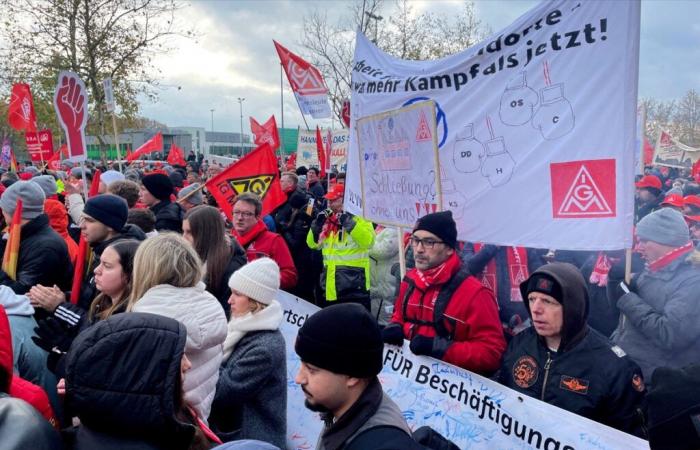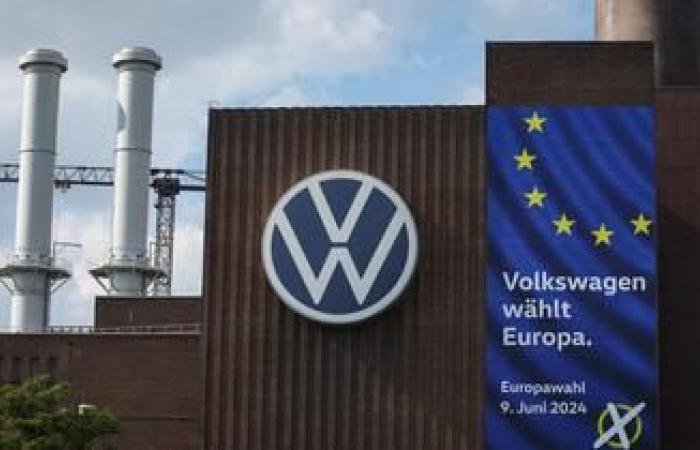All Volkswagen employees in Germany are called to stop work from this Monday. Here are the reasons which explain this social movement of unprecedented scale.
The Volkswagen group in turmoil. While Germany is in the middle of the campaign for early legislative elections, all employees of the largest European manufacturer are called to stop work from Monday.
This is the first step in a movement which could take on unprecedented proportions if management and staff representatives cannot reach agreement on cost-saving measures to restructure the group in crisis.
“Warning strikes will begin on Monday in all factories,” Thorsten Gröger, the negotiator for the IG Metall union, announced in a press release on Sunday, at the end of the compulsory social dialogue period for 120,000 employees of the brand in Germany.
“If necessary, this will be the toughest collective bargaining battle that Volkswagen has ever known,” he warns, holding management “responsible, at the negotiating table, for the duration and intensity of this confrontation” .
In a separate statement, Volkswagen said it “respects the rights of employees” and believes in “constructive dialogue”, under the principle of co-management, to “achieve a sustainable and collectively supported solution”. The company specifies that it has “anticipated targeted measures to secure emergency supplies” during the movement.
In the country, Volkswagen has ten car production sites and around 300,000 employees, including 120,000 for the VW brand, the most affected by the savings plan.
An unprecedented social conflict
IG Metall, the powerful metallurgical union, said it was ready “for a social conflict such as the Federal Republic has not experienced for decades”.
The leading European manufacturer launched an unprecedented cost hunt in September, aiming for savings of several billion euros to improve its competitiveness. Three negotiation sessions between management and union took place and “the difference between positions is still enormous”, according to Thorsten Gröger.
The gap even widened with management's rejection on Friday of a union counter-proposal aimed at reducing costs without having to close factories in Germany.
The group's management continues to consider closing factories in Germany, three according to the union, which would be a first in the group's history. The two parties will meet on December 9 in Wolfsburg for a fourth round of negotiations.







